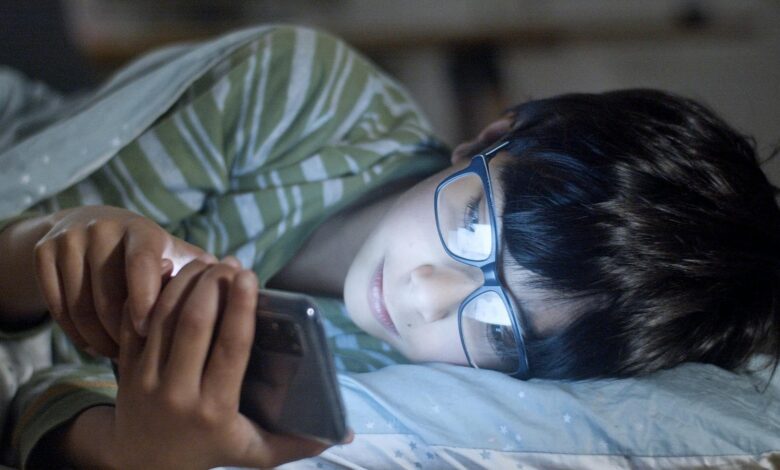Are smartphones harmful to your child’s development? Discover the alarming truth from an expert

Smartphones are everywhere and they affect many aspects of our lives. Children, like adults, often spend many hours on these devices. While smartphones give us easy access to information and entertainment, there are growing concerns about their impact on children, especially in relation to brain development.
In a recent podcast, social psychologist Dr. Jonathan Haidt discussed why parents should consider limiting smartphone use in children. First, he highlighted some issues related to excessive screen time. reported by The Indian Express.
Risk of vision problems
Haidt notes that children who spend too much time in front of screens are at risk of developing nearsightedness or nearsightedness. Studies show that focusing on close-range activities, such as using a smartphone, can change the shape of the eye, leading to vision problems. Children in homes without enough natural light are at higher risk. Exposure to sunlight is important for healthy eye development and can help prevent nearsightedness.
Affects cognitive development
Research has linked excessive screen time to cognitive delays in children. A study published in Jama Pediatrics found that children who spent more time in front of screens at ages 2 and 3 performed worse on developmental tests at ages 3 and 5. This suggests that early exposure to screens can affect language skills and problem-solving abilities.
Also read: Fake IRCTC app among 6 major online scams targeting users during festive season- All details
Brain development concerns
Dr. Andrew Huberman, also on the podcast, explains that childhood and adolescence are critical times for brain development. Smartphones can disrupt this process by providing instant gratification through social media and games. This disruption can lead to difficulties with attention, impulse control, and emotional regulation. Children who use smartphones excessively often have shorter attention spans and are more easily distracted.
Mental health risks
Haidt issued a warning about the link between smartphone use and mental health problems in children, such as anxiety and depression. Pressure from social media can create a harmful environment, especially for girls, who face unrealistic beauty standards and cyberbullying. Instant gratification from social media can create unhealthy behavior patterns that lead to long-term mental health challenges.
Also read: Download movies for free? You could fall victim to ‘Peaklight’: What it is and how it works
Impact on social skills
Smartphones can push children to focus on virtual identities instead of forming real-life connections. Haidt emphasizes that children need real-life experiences to develop social skills and emotional intelligence. Excessive smartphone use can hinder critical thinking and problem solving, as easy answers replace deep thinking.
Impulse control problems
Haidt and Huberman discussed how excessive smartphone use can affect the development of impulse control. The immediate rewards of likes and notifications can interfere with a child’s ability to wait for rewards, leading to self-regulation challenges.
Also read: Smart Reply Powered by Google Gemini Coming to Gmail- All the Details
Exposure to inappropriate content
Smartphones allow children to access uncontrolled internet content, which can be harmful. Haidt shared an example of disturbing Internet challenges that can traumatize children and affect how they handle fear and stress. Algorithms on the platform often promote extremist content, which can lead children down dangerous paths.
Encourage safer smartphone use
To minimize these risks, parents can take several steps. Delaying smartphone use until children are older can help protect their brain development. Limiting social media use until at least age 16 can prevent negative mental health effects. Encouraging outdoor activities and establishing screen-free zones at home can support healthy development.




